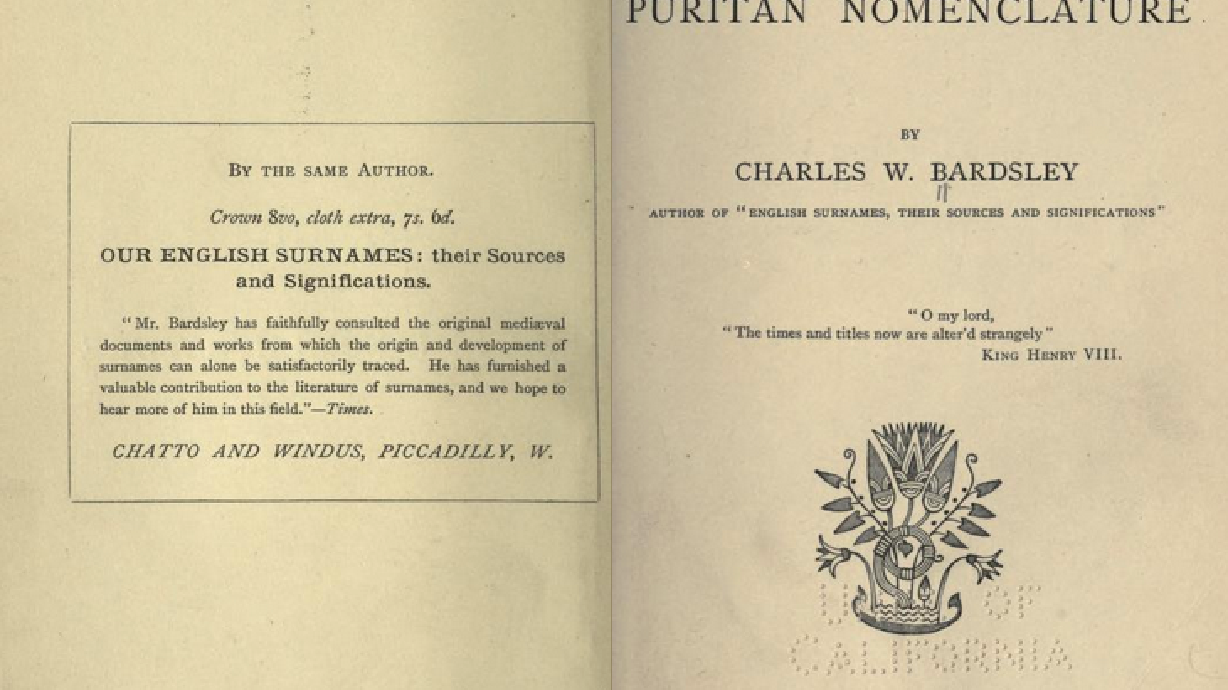Estimated read time: 2-3 minutes
This archived news story is available only for your personal, non-commercial use. Information in the story may be outdated or superseded by additional information. Reading or replaying the story in its archived form does not constitute a republication of the story.
OLDE ENGLAND — As strange as some local baby names can seem, we here in the Beehive State have nothing on the naming trends of the British Puritans during the 16th and 17th centuries. Taken straight from religious texts, names in Merry Ol' England gave their bearers more than a little to live up to.
Public Domain Review.org recently released a copy online of the 1880 edition of "Curiosities of Puritan Nomenclature," written by Charles W. Bardsley. The book highlights some of the eccentricities of older British naming customs.
"It was a practice instituted of deliberate purpose," Bardsley writes, "as conductive as vital religion, and as intending to separate the truly godly and renewed portion of the community from the world at large."
He explains the early English naming structures and highlights some of the ways things shifted over time.
"The father that should style his child Nehemiah, or Abacuck, or Tabitha, or Dorcas, he discovered with dismay, did not prove that the particular parent was under any deep conviction of sin," Bardsley says.
- From-above
- Praise-God
- Zeal-of-the-land
- Accepted
- Joy-again
- Sense
- Chylde-of-God
- What-God-will
From there, he explains, was birthed the movement of naming wee babes with overtly religious monikers. Little Learn-wisdom or Hate-evil became as common of names as John or William.
The Puritan naming movement gave rise to a host of children with names like Sorry-for-sin and No-merit. Faint-not and More-fruit ran and played with comrades Merciful, Sin-denied, and Assurance. Want to ensure your son always remembers just how long you were in labor with him? Name him Tribulation. Want to keep your daughter humble? A stout name like Humiliation does the trick.
Bardsley outlines the rise and ebb of the movement and concludes with a summation of the movement and its reach.
"The purely Biblical names, those that commemorate Biblical worthies, swept over the whole country, and left ineffaceable impressions," Bardsley says.
Next time you think about making fun of a new, trendy sounding baby name, just think — it could be worse. They could have named him Repentance Wrathe.









